Economics, self-determination and self-development needed in 2018
BY CHARLENE MUHAMMAD AND BARRINGTON SALMON | LAST UPDATED: JAN 1, 2018 - 11:57:54 PM |
Harsh realities await Blacks in 2018, and to overcome hurdles they must unite, better educate themselves and their children, and pool their resources, said activists, educators, and legal analysts.
Black awareness on the basic principles of economics and more involvement are key to a better year and future in economics, according to TeQuila Shabazz, founder and chief strategist of the BRIJ Embassy, which promotes business and economics and is located in Chicago.
It is a collective of over 5,000 members and supporters from all walks of Black life that work to build economic stability within Black America.
“Most of us are simply reacting to the environment without any true understanding of how to move beyond the world created for us. The majority of us are looped into a pattern of group think, stuck as consumers, not owners or creators,” stated Ms. Shabazz.
Black buying power is predicted to top $1.5 trillion by 2021, according to African-American Women: Our Science, Her Magic, a Nielsen report released in September. Ms. Shabazz suggested Blacks get back to the basic understanding of economics and expand the conversation beyond traditional financial literacy and consumerism, and take inventory of their time, money and resources for maximum benefit of their dollars.
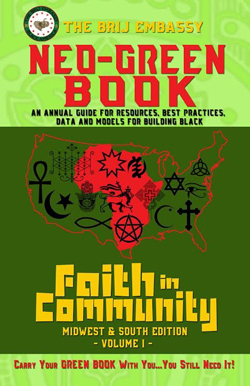 |
“Are we learning a new skill, like farming, that can help with both individual and collective independence, or are we binge watching our favorite show on Netflix? Are we making excuses of why we can’t support Black businesses, or are we planning ahead to make sure that we can? You have to be honest about who you are and your contribution to the problem or solution,” Ms. Shabazz said.
In criminal justice reform, Blacks must continue the dialogue around ending money bail and jail expansion, said Nana Gyamfi, a Los Angeles-based human rights attorney.
In addition to the 1.6 million people incarcerated in federal and state prisons, there are 646,000 people locked up in more than 3,000 local jails throughout the U.S., according to Prison Policy Initiative. Seventy percent of those in local jails are being held pretrial—meaning they have not yet been convicted of a crime and are legally presumed innocent.
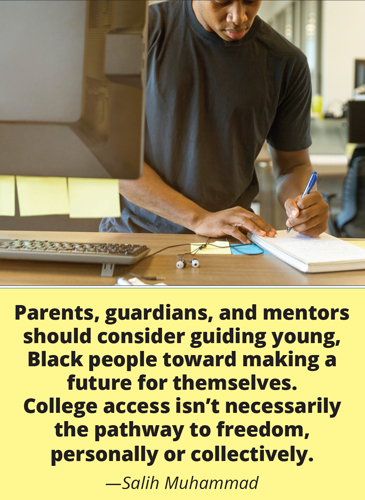 |
“There’s a real push to reform the bail system, and I think that that push is getting a lot of traction, and that we may find in 2018 that in some places, bail is no longer an issue, unless we’re dealing with super serious cases and that we have less people that are spending months and years of their lives in jail, innocent until proven guilty, just because they can’t afford bail,” said Atty. Gyamfi.
She said Blacks must also continue to push back against jail expansion, and the investment of hundreds of millions of dollars into incarceration and policing.
In addition, connect the dots between immigration and detention centers and mass incarceration, she said.
The new year demands Black college students focus on acquiring the knowledge necessary to build a nation and a better future for their people, said Salih Muhammad, chairman of the Afrikan Black Coalition, which works to unify Black students across California and resolve issues concerning academic retention, academic policy, campus climate, matriculation, and political education.
According to a recent study (“The Asset Value of Whiteness: Understanding the Racial Wealth Gap,”) published by DEMOS, the median White adult who attended college has 7.2 times more wealth than the median Black adult who attended college and 3.9 times more wealth than the median Latino adult who attended college.
“Strategically, we must find innovative ways to best organize the resources we do have toward meaningful freedom-based objectives. Toward this goal, our biggest issue continues to be the lack of knowledge of self, which produces a downward spiral of productivity. The lack of self-knowledge robs our people the benefit of ‘education,’ ” he said.
Parents, guardians, and mentors should consider guiding young, Black people toward making a future for themselves, he argued. College access isn’t necessarily the pathway to freedom, personally or collectively.
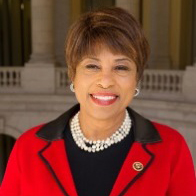 Congress woman Brenda Lawrence of Detroit, Mich. |
Learning trades certainly helps, according to Congresswoman Brenda Lawrence of Detroit, Mich., who sponsored the “Putting Black America to Work: the New Skilled Trade Workforce” panel at the 47th annual Congressional Black Caucus Foundation’s Annual Legislative Conference in September in Washington, D.C.
The United States is importing foreign welders for jobs that pay from $30-50 an hour, observed Gregory Clay in the AFRO.
According to Rep. Lawrence, the average age of skilled trade workers is 53, and the trades are one industry that needs an infusion of youth, especially from the Black community, wrote Mr. Clay.
Rep. Lawrence sponsored the panel to determine why young Blacks are seemingly shying away from the trades, such as welding, plumbing, construction, electricity, heating and air conditioning, post office positions, railway occupations, etc.
Salih Muhammad, a young leader and Nation of Islam student minister, cautioned against steering Black students into the social sciences and liberal arts without thought to what their educational outcome should be.
Others advocate self-education as a supplement to formal education to ensure Black students land on the right side of the economic track.
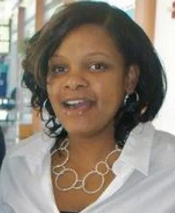 Gwen Samuel, education advocate and founder of the Connecticut Parents Union |
Then, they must resolve to vote for changes, she said.
“Whatever the lane that God has put us in, handle your business in that lane! So you start out 2018 thanking God for another year to fight, but fight we must,” Ms. Samuel told The Final Call.
Nationally, over three million public school students received at least one out-of-school suspension and 130,000 were expelled during the 2011-2012 academic year according to the latest 2014 statistics by U.S. Department of Education.
Statistics by the Penn Graduate School of Education indicate Blacks were nearly half of all students suspended and expelled from public schools in the South—with 427,768 Black boys suspended and 14,643 expelled.
According to Columbia Law School Professor Kimberlé Crenshaw and colleagues in their 2015 report, “Black Girls Matter: Pushed Out, Overpoliced, and Underprotected,” 90 percent of all girls expelled from New York City public schools in 2011-12 were Black.
As for the ongoing debate about school choice, which allows public education funds to be used for private school, charter school, home school or any other learning environment parents choose, Ms. Samuel feels everyone must take responsibility for the state of failing education in 2018.
Charter school proponents argue that expanding the pool of schools gives children of color a better opportunity to learn, while staunch supporters of public education state that more resources and funding are needed to make schools better.
“It’s bigger than charters. The law says that parents have the legal right to the upbringing of their children. … Parents should be thinking about all options to protect their babies: homeschooling, charters, vocational schools, technical schools. Are we teaching our kids the manufacturing realm again?” asked Ms. Samuel.
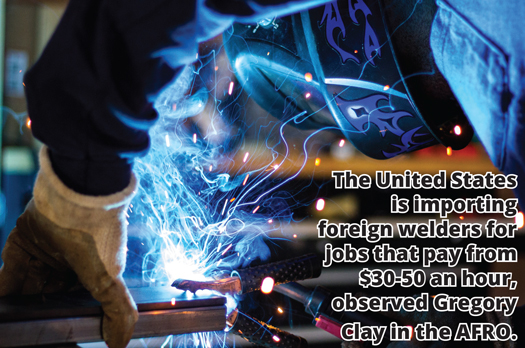 |
Throughout the year 2017, Black Americans witnessed the beginning of the backlash Black America is paying for eight years of Barack Obama.
New York businessman Donald Trump rode into the White House on the back of a campaign characterized by White grievance, racial resentment and a coded promise to pull America back to a time when Whites were ascendant and Blacks, women, immigrants, foreigners and gays and lesbians knew their place.
“America elected Trump which emboldened people. He made it clear that he wants to make America White,” said D.C. businesswoman Danielle Ricks. “The racists have really came out of the woodwork, probably the most visibly since Jim Crow. It’s just incomprehensible to them that an intelligent Black man became president. America wasn’t supposed to elect a Black resident. It doesn’t matter that he’s half-Black, half-White.”
The Howard University grad and owner of a media company that provides digital, social and visual media for a range of clients, said in 2017, racism, bigotry and intolerance grew.
Black Lives Matter activists and NFL player Colin Kaepernick were among those who kept issues like police brutality, the state-sanctioned murder of Black people and mass incarceration in the public spotlight.
“It’s been an interesting dichotomy of seeing people fighting for exclusion versus inclusion, the spike in racial slurs and hate crimes and ‘woke’ people finding their voice,” Ms. Ricks said. “African Americans are realizing that not only do we have to go to the polls, but we have to hold the people we elect accountable and run for office.”
In a year of retrenchment politically, economically and socially, Blacks while on the defensive, have ignited a powerful and significant counter narrative as it relates to political activism and making their votes count.
As the November and December elections in Alabama, Virginia and New Jersey showed, Blacks are not going anywhere without a fight.
Alabama’s Dec. 12 special election results illustrate the electoral muscle of Black men and women by powering Democrat Doug Moore to a coveted U.S. Senate seat against his rival, religious fundamentalist Judge Roy Moore. According to exit polls, 98 percent of Black women voted for Jones, while 63 percent of White women cast their ballot for the accused pedophile.
Washington, D.C. resident and historian Dr. Shantella Sherman said Blacks went back to basics.
“These Black women took it back to Ella Baker and Fannie Lou Hamer. They organized behind the scenes for quite a while,” said Dr. Sherman, a journalist, author and publisher whose professional concentration is Eugenics. “I’m absolutely floored that 70-year-old women transported people to the polls. They started to do it the way our parents and grandparents did it. In both instances, it was Black women taking center stage. They opened up a whole other thing and embody ‘the future of woman’ slogan. The past, present and future has always been the Black woman.”
Noted historian and author, Dr. Gerald Horne agreed with Ms. Ricks’ position, but took the issue further, saying that Blacks should be seeking and working toward alternatives to the Democratic Party.
“In terms of us trying to fight back politically and economically, I’d give Black people a ‘C,’ ” said Dr. Horne, author of “The Counter-Revolution of 1776: Slave Resistance and the Origins of the United States of America,” released in 2014. “The main weakness of us in the Black community is not that we don’t resist, but that there’s a missing link in our struggle. There’s a powerful force we could link with and that’s internationally but we’re hesitant to do so.”
Dr. Horne—who has written at least two dozen books—asserts that in the face of the unrelenting hostility Africans in America face, the fight waged by those in the social justice arena and anti-oppression movements in the U.S. would be considerably more effective if they linked up and coordinated with international allies fighting U.S. imperialism.
“But people are hesitant because there’s retribution if you begin to do this. There’s intimidation. Look at Paul Robeson. The lesson of Robeson has not been forgotten,” he said of the civil rights icon who was stripped of his passport, ostracized and denied the right to work because of his support of Communism and willingness to partner with international allies.
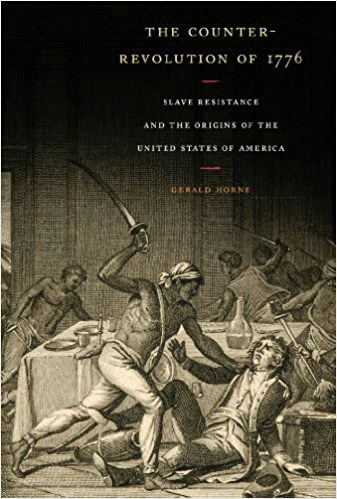 |
Dr. Sherman said her concern has grown as the Trump administration “has peeled back civil rights,” as gentrification has taken hold in Washington, D.C., Philadelphia, Brixton in London and Berlin, triggered displacement and affordable housing has disappeared. Of equal concern, she said, is the increasing number of wealthy Black business people and others who have embraced economic nationalism.
“Please understand that you have a whole group of ultra-conservative Black people who have bought into this idea,” said Dr. Sherman, who covered a Dec. 5 luncheon fundraiser and presentation by former White House strategist and Breitbart Executive Chairman Steve Bannon at the Willard Intercontinental Hotel in Washington. “For them, it’s not about race. They think of themselves as conservatives and are using Republican logic.”
“They complained about President Obama forcing them to be fair to immigrants and hire ignorant Spanish people, people with green cards and Africans. It was amazing to watch. There wasn’t a single person who wasn’t cheering Bannon. They hero-worshipped Bannon and paid $500 a plate in the middle of the week to see him. They agree with Bannon but don’t want anyone to know that they’re in bed with Trump or Bannon,” she said.
The biggest triumph for Blacks in 2017 has been the awakening, the sprouting of the seeds that Min. Farrakhan has been planting in his 40 years of labor in the absence of his teacher, the Honorable Elijah Muhammad, said Dr. Ava Muhammad, national spokesperson for Min. Farrakhan and the Nation of Islam.
That movement toward self-determination and liberation must increase in 2018. Separation is the ultimate and best answer to the race problem in America.
People are witnessing globally Black people’s awakening and their desire to be free, justified, equal, and to go for self, she said.
“We are witnessing in every arena, from agriculture to entertainment, young, Black people are making it clear that they no longer desire to be in servitude to the children of their slave masters. They desire that which Allah has intended for them,” said Atty. Muhammad.
(Final Call staffers contributed to this report.)
No comments:
Post a Comment